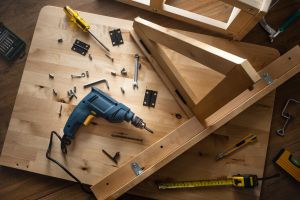Smart Ways to Invest Your Lump Sum
Congratulations! That scratch ticket finally paid off. Or perhaps you won your personal injury claim. In either case, you now have a lump sum of cash that you’re ready to spend. You can’t wait to buy that new car you’ve always wanted, or maybe your wardrobe could use a refresher. Stop! Don’t spend your lump sum all in one place. Instead, consider how to invest a lump sum of money wisely for your future.
Looking to sell your structured settlement payments for a lump sum? If so, contact us at 866-931-9321 for a free, no-obligation quote today!
According to the National Endowment for Financial Education, approximately 70% of Americans who enjoy a sudden windfall will lose all of that money within a few years. And some estimate that 1% of lottery winners go bankrupt every year.
Although that hefty check may feel like it’s burning a hole in your pocket, you should take some time to weigh your options. Assess your current financial situation (excluding your lump sum) to determine what financial goals you want to pursue within the near future. If you live within your means, your lump sum can go a long way toward establishing a solid financial base.
Set Aside Money for Emergency Savings
 Financial emergencies happen when you least expect them. A car accident could leave you injured for weeks or even months. A company merger could result in pay cuts or even job loss. And if you’re not prepared for the event, you may find yourself scrambling to make ends meet.
Financial emergencies happen when you least expect them. A car accident could leave you injured for weeks or even months. A company merger could result in pay cuts or even job loss. And if you’re not prepared for the event, you may find yourself scrambling to make ends meet.
So make an emergency savings account your first priority. Start by aiming for $1,000 in personal savings to cover routine emergencies like home or car repair. Then gradually increase that amount to cover your rent, utilities, and grocery bills for 3 to 6 months should you happen to lose your job. Ideally, you’ll want at least 6 to 12 months of emergency savings in case you face long-term unemployment.
Pay Off High Interest Debt
Now that you have a savings account, it’s time to take a look at those credit card bills. When you pay off your bills over a long time period, high-interest debt (more than 6% to 8% interest) can cost you a lot of money.
Paying your credit cards bill now will free up more funds for you to spend on yourself later. And the faster and more consistently you pay your bills, the better your credit score will be—which will come in handy should you decide to buy a house or car.
Invest in a Roth IRA
 When you’re young, retirement can feel like it’s forever away. You think you have plenty of time to save for retirement, so you put your funds toward more immediate and pressing needs.
When you’re young, retirement can feel like it’s forever away. You think you have plenty of time to save for retirement, so you put your funds toward more immediate and pressing needs.
However, most money management experts will tell you that you should save for retirement as soon as you can, preferably in your early twenties. This is because investments compound over time, making your money work for you.
For example, at 25 years old, you set aside $3,000 a year in a tax-deferred Roth Ira for the next 10 years. By the time you turn 65, you could potentially earn more than $472,000.
But if you were to wait until you were 35, that same amount would only have the chance to grow to about $367,000. That’s more than a $105,000 difference!
Not sure where to invest your lump sum? Talk to a financial advisor who can guide you through the investing process.
Start a Health Savings Account
Since you already have a savings account for emergencies, you might wonder why you need a health savings account on top of that. However, if you have a high-deductible health insurance plan, you can contribute up to $3,250 for a single person or $6,450 for a family to your account pre-tax. And when you take it out again for qualified health care expenses, it will be completely tax free.
Additionally, once you turn 65, you can withdraw the money from your HSA for any reason without a penalty. This will work well alongside your Roth IRA to support you during retirement.
Focus on Home Repairs
 Next to your Roth IRA and your savings accounts, your home is likely your biggest investment. If you own a home, consider using your lump sum to cover home repairs. Small upgrades to appliances and fixtures can go a long way to increasing your home’s resale value.
Next to your Roth IRA and your savings accounts, your home is likely your biggest investment. If you own a home, consider using your lump sum to cover home repairs. Small upgrades to appliances and fixtures can go a long way to increasing your home’s resale value.
For example, if you pay $1,218 for a half glass 20-gauge steel door, you might increase your home’s resale value by as much as $1,243. This generates a return of 102.1%. But remember to keep these repairs within reason. While you may want to install an in-ground swimming pool, future buyers might not want to pay the extra expense of maintaining it. This could make it more difficult to sell in the future, hurting your investment.
Spend a Little on Yourself
Once you’ve set aside your funds to handle your more pressing financial issues, feel free to spend a little of that money on yourself. Just because you use money wisely doesn’t mean that you can’t have a little fun now and again.
Are considering selling your structured settlement payments for a lump sum? If so, contact us at 866-931-9321 for your free, no-obligation quote today!




